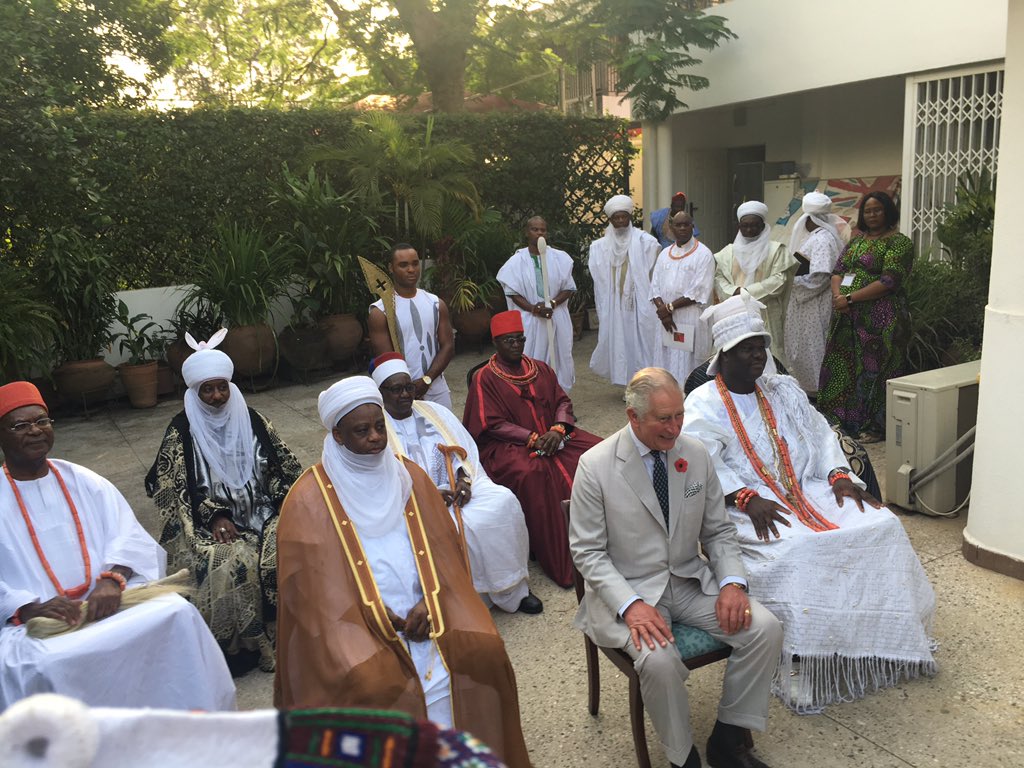There are no products in your shopping cart.
| 0 Items | £0.00 |


Ayo Akinfe
[1] With 23% of Nigeria's workforce unemployed, it is no surprise that violent crimes like armed robbery, kidnapping, banditry and terrorism are on the rise. With no means of survival, our youths have no alternative than to take up arms
[2] It is also no shock that the problem is most pronounced in the northwest geo-political zone as 80% of the population there live on less than the United Nations threshold of $2 a day. Just do the arithmetic. The northwest is home to 35m people, 70% of whom are below the age of 30. With no jobs, education, prospects, vocational training of opportunities, the youth are canon fodder to those giving them arms to commit crime
[3] Back in the 1960s, Northern Nigeria witnessed unprecedented economic expansion as the textiles, agriculture and leather industries expanded. Back then, the premier of the old Northern Region Sir Ahmadu Bello even boasted that there is no one he cannot employ. He once said that if a person made too much noise, the strategy was to pay him enough to keep him quiet
[4] What has happened since is simple. As the population has grown, the economy has not expanded at the same rate. There are no new jobs being created and the civil service simply cannot absorb all the jobless. Nobody is creating new industries like Arewa Textiles, Bank of the North, New Nigerian Newspapers, etc. Also, the northwest is not attracting foreign investors like Peugeot Automobile, Capri Son, Brahma Guarana, etc as it used to
[5] Ahmadu Bello did not reinvent the wheel. All he did was follow the blueprint laid down by Frederick Lugard, Nigeria’s first ever governor-general when it came to investment. Lord Lugard generated unprecedented revenue through taxation and used the money to create openings. This is how for instance he built the port of Port Harcourt, the new capital of the Northern Region Kaduna and funded his administration. Bear in mind Lugard started from scratch. He built cities from what were hitherto villages made of nothing but mud huts
[6] On 1 January 1900, the Royal Niger Company transferred its territories to the British government for the sum of £865,000. What this meant was that the owner of the company George Goldie, sold Nigeria to Britain for £865,000 and Lugard was put in charge of running the territory. Having paid out that kind of money, the British government made it clear to Lugard that they would not give him a penny to run Nigeria and he must raise all his funds locally. Lugard went about doing this with a gusto. He should be given credit for making Nigeria wholly self-reliant while at the same time generating a massive surplus of raw materials to send back to Britain. Cocoa, groundnuts, rubber, cotton, etc were exported to Britain in large quantities
[7] One thing Lugard got spot on in Nigeria was that he realised the country was made up of 40 provinces. This is by and large the basis of our 36 states today. Lugard’s next step was to flood the provinces with traditional rulers and task them with the job of raising tax. Where there were no monarchs, he created them through numerous means including the installation of Warrant Chiefs in the southeast, making successful palm oil traders like Jaja of Opobo and Nana of Olomu monarchs, creating emirates across northern Nigeria and installing an Oba in every town across southwest Nigeria. These monarchs collected tax with a gusto and presided over the native courts that penalised those who failed to pay their taxes. Lugard sometimes had monarchs who failed to deliver flogged in public. If you continued to be incompetent, you were removed and a more efficient traditional ruler was appointed in your place
[8] In 2022, we face a similar kind of challenge to Frederick Lugard in that we need to raise capital to fund infrastructural development, administer the country, create jobs and soak up unemployment. Vice President Professor Yemi Osinbajo, has said we need to invest $140bn annually in the economy to make Nigeria at ease with herself. Lugard wasted no time in addressing a similar challenge as within 10 years, he increased the number of Nigerian traditional monarchs from just over a dozen to about 500. Lugard hated educated intellectuals, so most of his appointees were illiterate. He just wanted people who would collect tax without asking any questions or make any fuss
[9] Given that our total budget today is a meagre $30bn, we may need to borrow a leaf from Lugard’s book to meet our target of $140bn. Nigeria has one of the lowest tax-to-GDP ratios in the world, at just 6%. I suspect Lugard’s ratio was about 90%. Essentially, the Nigerian government needs to embark on one of the most ambitious tax drives ever known in history to fund infrastructural development and economic expansion
[10] In today’s Nigeria, the places where people congregate the most are in the church, mosque and market place. Maybe the federal government should issue special tax warrants to pastors, imam’s and iyalojas to raise revenue on its behalf. If every Nigerian who pays 10% of their wages in tithes, pays a similar amount in taxation, we are home and dry. Do you know how much is collected in mosques up and down Nigeria every Friday? As we have one bowl for the imam, we need another one for the treasury. It may also be an idea to get traditional rulers to revert back to their original role as tax collectors. Personally, I would provide an incentive of allowing the pastor, imam, traditional ruler and iyaloja to keep 5% of all revenue they raise